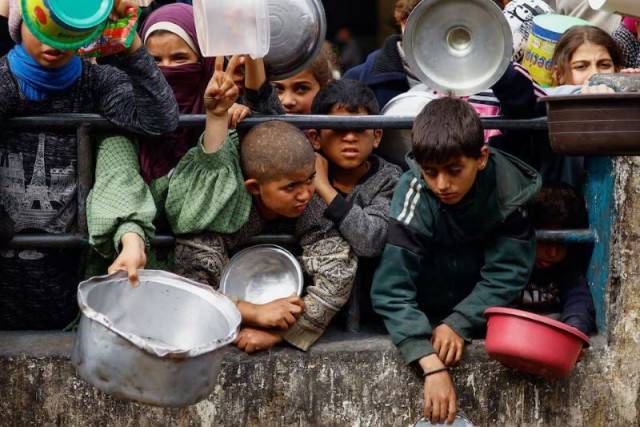Climate change feared to trigger food crisis
Fruit, vegetable exporters join global forum to seek investment in agriculture

Pakistan’s fruit and vegetable exporters foresee a major food crisis in the near future, triggered by the unending climate change, and have joined a global forum to stimulate foreign investment to protect and improve local agricultural practices and production.
Speaking at the signing ceremony of a memorandum of understanding (MoU) between the Climate Vulnerable Forum (CVF) & V20 and the All Pakistan Fruit and Vegetable Exporters, Importers and Merchants Association (PFVA), the association’s Patron-in-Chief, Waheed Ahmed, said, “I am seeing a major food crisis in Pakistan in 2025-26 if the threat from climate change is left unattended to.”
He pointed out that Pakistan had become an importer of even those food items which were commonly consumed in almost all households everyday including onion and tomato due to the impact of climate change. Until a year ago, Pakistan was a net exporter of such commodities.
Orchards of citrus fruit (kinnow) and mango were being badly hit by global warming after banana crop faced the same damage in recent times, he said.
Shortage of food is not only impacting exports of Pakistan, but the reduced harvest is even not enough to satiate domestic demand, resulting in fast growing “food insecurity in the country”.
Ahmed lamented that the government had allocated almost nothing in the budget for fiscal year 2024-25 for controlling greenhouse gas emissions, adding that in such a situation the agriculture sector had become vulnerable and jobs of millions of people were at stake.
He revealed that members of the association met Prime Minister Shehbaz Sharif last week to discuss climate change and the requirement of funds to mitigate its effects.
Ahmed added that Pakistan’s research houses lacked the capacity to develop climate-resilient seeds and increase food production according to global standards.
He called on the authorities concerned to seek assistance from China, which had achieved excellence in agricultural production and better knew how to cope with climate threat.
Pakistan’s annual horticultural exports have remained thin at $750-800 million due to the use of outdated seeds, especially for citrus fruit. Kinnow exports have dropped to a mere $100 million this year compared to $220 million last year.
At the same time, mango output has dipped 35% to 1.20 million tons compared to last year, making a dent in exports of the fruit.
Speaking on the occasion, CVF & V20 Director for South Asia Hamza Haroon said Pakistan joined the forum in 2021 and today PFVA signed an MoU for mobilising global resources to combat global warming and protect the agriculture sector.
He emphasised that the forum was working globally with the climate-vulnerable nations to transform them into climate-prosperous states through climate adaptation (changing habits in line with the changing climate) and climate mitigation (abandoning the use of products like coal and oil).
He disclosed that the forum had mobilised $600 million in carbon swap for Ghana and also did similar things in Sri Lanka. The MoU with PFVA has enabled it to seek such investment for Pakistan as well.



















COMMENTS
Comments are moderated and generally will be posted if they are on-topic and not abusive.
For more information, please see our Comments FAQ